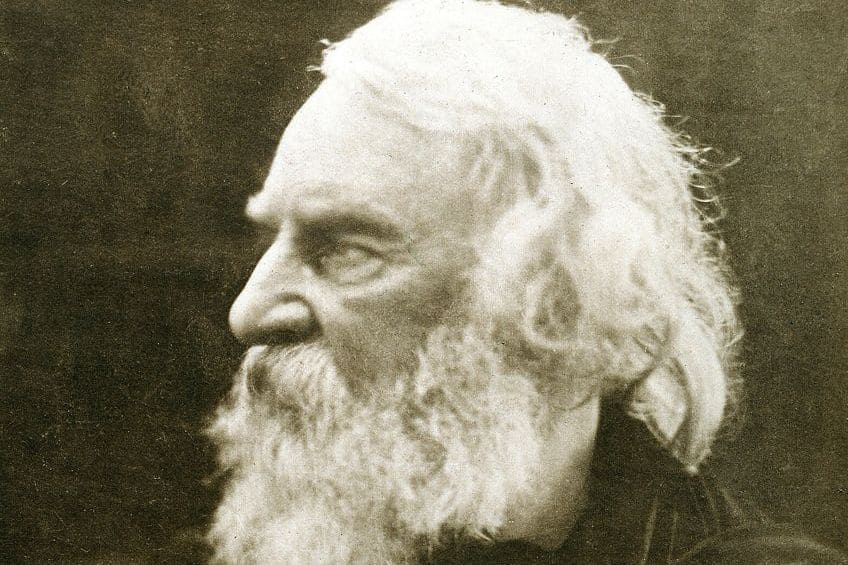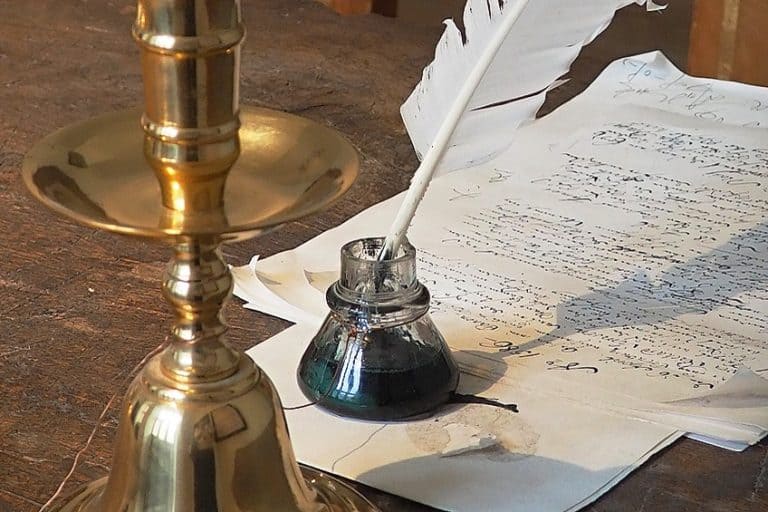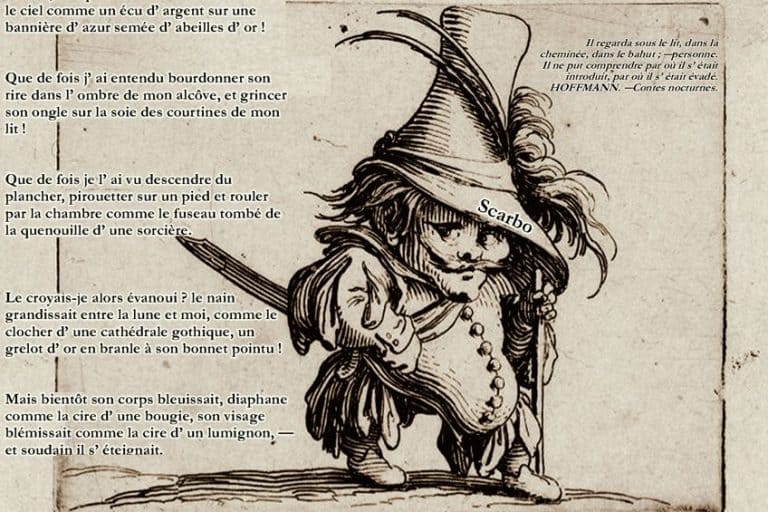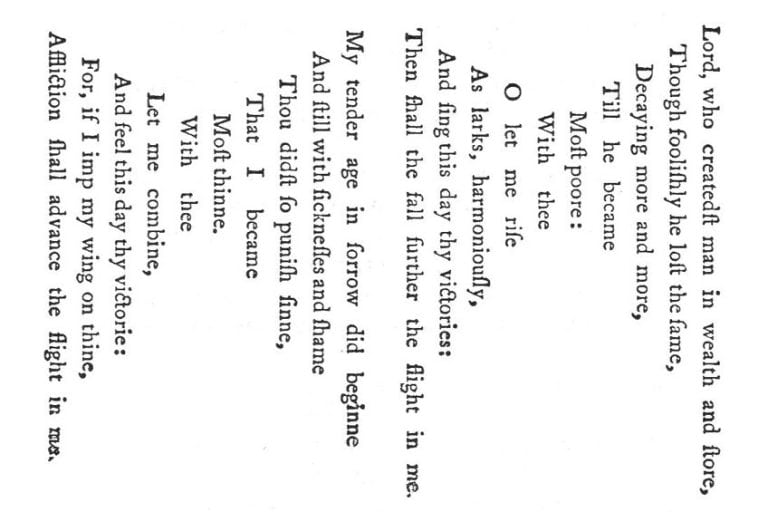Poems About Growing Up – Navigating Life Through Poetry
Something that we all are all forced to deal with in our lives is the act of growing up. We all started as babies and, provided we survive, we ultimately reach adulthood and leave our childhoods behind. However, our childhoods shape us into who we become. We can often understand our loves, hates, traumas, and goals through the lens of our childhoods, and that is why there are many childhood poems about growing up. This article will examine ten such poems to see the different ways in which poems about childhood can explore that very concept. There are many ways that this topic can be approached, so let’s see the myriad of ways in which this can be done below!
Table of Contents
- 1 A Few Poems About Growing Up
- 1.1 You Were Born with Potential (13th Century) by Rumi
- 1.2 Looking Forward (1878) by Robert Louis Stevenson
- 1.3 Mine Enemy is growing old (1880) by Emily Dickinson
- 1.4 When You Are Old (1892) by W.B. Yeats
- 1.5 When I Was One-and-Twenty (1896) by A. E. Housman
- 1.6 Youth And Age (19th Century) by Henry Wadsworth Longfellow
- 1.7 Virgin Youth (1916) by D.H. Lawrence
- 1.8 Grown Up (1917) by Edgar Albert Guest
- 1.9 Plenty (2001) by Isobel Dixon
- 1.10 Making a Man (2022) by Nixon Waterman
- 2 Frequently Asked Questions
A Few Poems About Growing Up
There’s this one thing that we all, sadly, do over the course of our lives, and that’s grow up. For this reason, there are many poems about childhood, our transition from childhood to later years, and our struggles with becoming ourselves. It is something that we all experience, so long as we make it to adulthood, and so it is one of the few truly universal concepts. We all have to grow up.
However, that does not mean that our development from one phase of our lives to another is necessarily a nice and pleasant thing. We all experience childhood in a variety of ways and, in addition to that, few have a childhood that is entirely positive. Our lives are made up of a combination of good and bad, and our childhoods are very much the same. So, when it comes to childhood poems about growing up, there are many different areas of focus.

Some poems about childhood focus on the ways in which we change as people, and how we slowly become the people that we are later in life. Others focus on the joys and nostalgia of youth. Others focus on the tragedies inherent in coming-of-age narratives. It is in childhood that we often encounter our first experiences with death and sadness, and a long or short poem about growing up can help us process those early difficult days.
The list of childhood poems about growing up in the list below represents a large array of the different kinds of poems about growing up. There is no single, unified theme in each of these other than the fact that they are focused on the earliest days of our lives. Some look at our early dreams, some see our potential, some connect us to the world around us, some look at the pressures of youth, and so on. There are so many different types of poems about childhood, so, let’s see some of those poems and perhaps you will even connect with a few of them.
You Were Born with Potential (13th Century) by Rumi
| Date Published | 13th century |
| Type of Poem | Inspirational poem |
| Rhyme Scheme | None |
| Meter | None |
| Topic | Potential |
You Were Born with Potential is a poem by the 13th-century poet, Rumi. He composed many fantastic poems over his life, but this particular poem is one of the best he produced about growing up. The idea of potential is explored in this short poem about growing up, and this is a common theme that can be found in poems about childhood. This is a period of our lives in which what we will become has yet to be determined.
The poem uses the metaphor of wings to examine this particular idea, and how we are born with wings that are “not meant for crawling”.
It encourages us to instead learn to use those wings, which represent our potential to fly. Because we are not destined to tread upon the earth but to soar far above it all. Or at least, in a metaphorical sense. The poem is ultimately an encouragement for us to strive for our dreams and ideals because we should not remain complacent with what is around us. We can rise above it.

Looking Forward (1878) by Robert Louis Stevenson
| Date Published | 1878 |
| Type of Poem | Children’s verse |
| Rhyme Scheme | AABB |
| Meter | Iambic tetrameter and trimeter |
| Topic | Anticipation to grow up |
Looking Forward is a poem by Robert Louis Stevenson, who has produced some of the most beloved pieces of English literature of all time. While his most famous works are generally prose in nature, such as Treasure Island (1883) and The Strange Case of Dr. Jekyll and Mr. Hyde (1886), he did also produce a number of poems during his career, and one of them is this poem about growing up. It is also a fantastic addition to this general theme of poetry.
The poem specially looks at the idea of growing up. It specifically looks at things from the perspective of a child who is still in childhood.
They are not retrospective about how they used to be, but what kind of man they want to become. It states that this child will be “proud and great”, and this short poem about growing up shows us how youth is a time to believe in what is to come and to dream of what you will become. It is not a time for pessimism but for yearning for what age can bring.
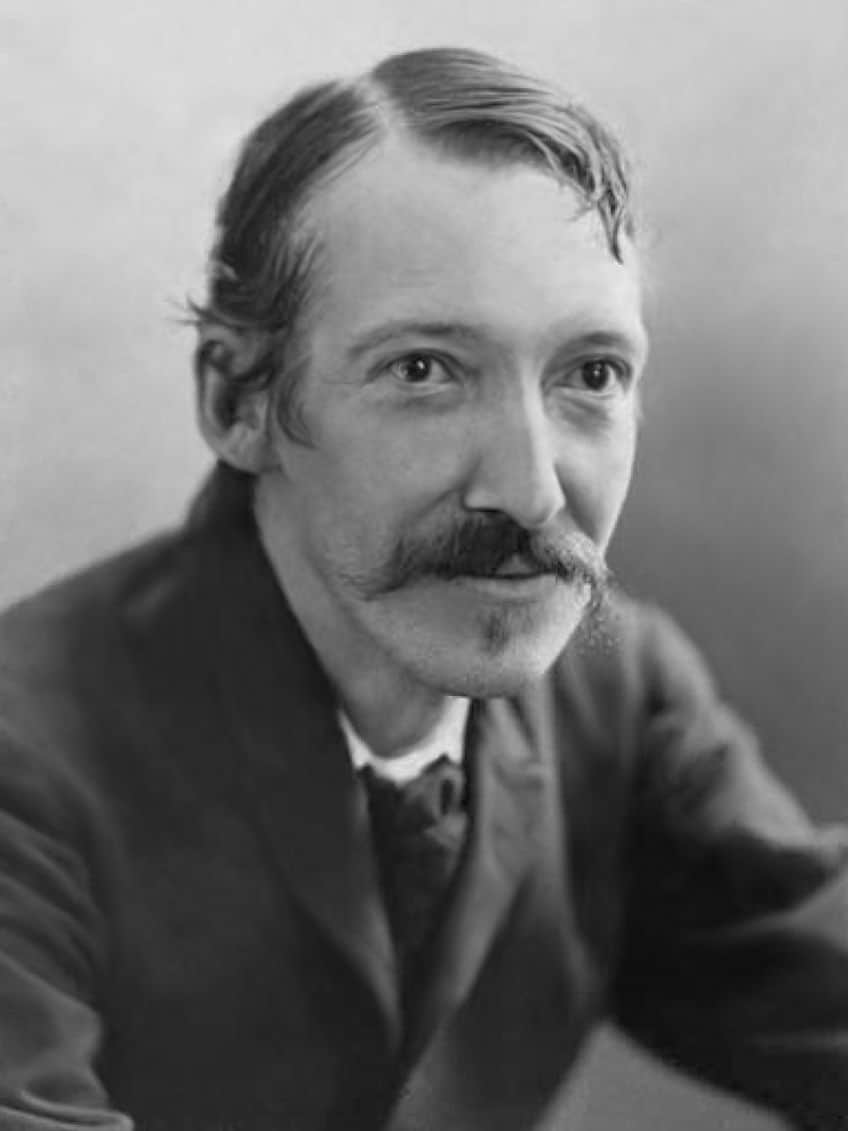
Mine Enemy is growing old (1880) by Emily Dickinson
| Date Published | 1880 |
| Type of Poem | Free verse |
| Rhyme Scheme | Variable |
| Meter | Variable |
| Topic | Aging |
Mine Enemy is growing old is a poem by one of the most famous American poets writing in free verse. Many poems by Emily Dickinson are some of the most influential of their type, and this particular poem is another of the great poems about growing up. However, unlike those that are focused on the idea of the positives, this one is far more negative and instead focuses on someone who was an enemy of the speaker.
The speaker notes that this enemy of theirs is growing older, and in that older age, there is a certain level of revenge there.
However, with the age of the speaker also comes a sense of forgiveness. Those older, earlier worries and hatreds can fade away with time, and instead lead to a mutual understanding of the mortality that is faced by both the speaker and their supposed enemy. Many of us experience anger or hatred for others throughout our lives, but as we too grow old, so do our emotions, and they wither and eventually weaken. Hopefully, the hate in all of our hearts departs as we age. It is not good to live in anger.

When You Are Old (1892) by W.B. Yeats
| Date Published | 1892 |
| Type of Poem | Love poem |
| Rhyme Scheme | ABBA CDDC EFFE |
| Meter | Iambic pentameter |
| Topic | Love and loss |
When You Are Old is a poem about growing up written by one of the most important figures during the transitionary period between 19th and 20th-century literature. W.B. Yeats produced a large array of spectacular poetry in his life, and this particular poem is an understandable and forward view of the later parts of growing up. To grow up can also refer to the way in which we age far later in life.
Who we were ten years ago is a child in comparison to who we are now.
The poem examines how we will be perceived, and how we may think when we pass out of our childhood and through our adulthood. We change and grow, and the poem takes a completive look at the way in which others have seen us as we have grown, and how we have been loved. The poem is a positive view of the changes that we undergo as we age.

When I Was One-and-Twenty (1896) by A. E. Housman
| Date Published | 1896 |
| Type of Poem | Moralistic poem |
| Rhyme Scheme | Variable |
| Meter | Iambic trimeter |
| Topic | Youthful mistakes |
When I Was One-and-Twenty is a poem that, as the title suggests, is focused on the age of twenty-one. We often think of leaving our teen years as entering adulthood, but it is also easy to argue that we are still very much children even when we do not perceive ourselves in such a way. In our early twenties, we are still young, and we still have much to learn, and that is what this particular poem wants us to acknowledge.
It states that at this age, an older person told the speaker how to approach love, and to not easily give it away.
The poem looks at how we can make mistakes in our love life, and that with age comes a better understanding of how to see and live in love. The final lines of the poem jump ahead to the speaker being twenty-two, and even one year later, the speaker realizes that the older person had spoken the truth to them. If we become more mature with every year, then we are living our lives as we should.

Youth And Age (19th Century) by Henry Wadsworth Longfellow
| Date Published | 19th century |
| Type of Poem | Petrarchan sonnet |
| Rhyme Scheme | ABBAABBACDECDE |
| Meter | Iambic pentameter |
| Topic | Youth and old age |
Youth And Age is one of the many poems about growing up that focuses on the transition from one mode of being to the next. It looks at how we move from our youth into our old age, and it shows us how this can be a slow and painful process. However, it is one that we all experience, and so it is one that we must all come to terms with as we grow and age in our lives.
There is a repeated structure for the first six lines in which an idea is repetitively reinforced.
This idea is a retrospective view of youth juxtaposed against age. For instance, the first line asks that life returns to when the speaker was “loose and free”, and the very next line reinforces how the speaker no longer possesses these qualities. The difficulties of aging are fraught and difficult, but the poem does not shy away from that as it continues. It is a rather melancholic poem, but one that should be understandable to anyone who has grown up and can look back on easier days of youth.
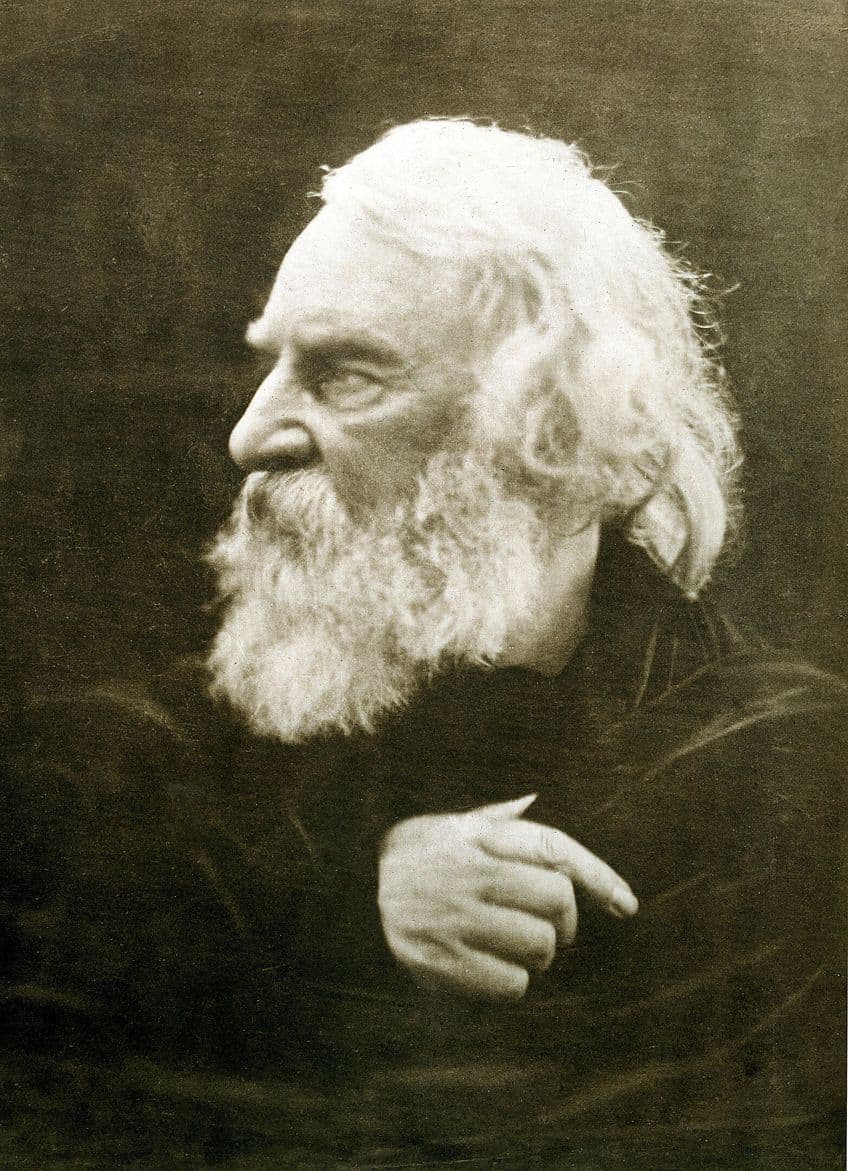
Virgin Youth (1916) by D.H. Lawrence
| Date Published | 1916 |
| Type of Poem | Narrative poem |
| Rhyme Scheme | Variable |
| Meter | Variable |
| Topic | Expectations |
Virgin Youth is a long poem by D.H. Lawrence, who was one of the most important figures in 20th-century literature. This poem focuses on the ideas of desire and how it grows within us as we age. As children, we do not desire quite as much when we are children, but the hunger for more grows as we become adolescents and then adults.
Aspects of the poem can be read as sexual desire, but it is more than only the sexual side of desire.
The poem opens with a sudden awakening to desire and the difficulties in the tension between what one thinks and how one feels. The suddenness of it all is also something that can often relate to all of us. We can generally remember a time before we had various desires, but when they came upon us can be difficult to remember in retrospect. Was it sudden? Was it a slow build?

Grown Up (1917) by Edgar Albert Guest
| Date Published | 1917 |
| Type of Poem | Narrative poem |
| Rhyme Scheme | ABAB |
| Meter | Variable |
| Topic | Childhood and adulthood |
Grown Up is a poem that is highly retrospective of its view of childhood. While many poems about growing up are from the perspective of the speaker, as they are written to understand the transition from youth to adulthood, this poem is speaking about someone external. That is a child. The poem goes through how this child has gone from loving various toys to wanting something practical as a gift. In this case, it focuses on that gift as a pair of rubber boots.
The rubber boots are continually referenced in each stanza of this poem.
The stanzas move from discussing how this child used to love building blocks and toys to how he then wanted a toy gun and eventually to one who only wants the rubber boots. The old playfulness of youth has passed the child, and his parents, by. He is no longer the child they once knew. He has moved on to something else and there is nothing wrong with that, but the parents can still feel sadness in seeing how quickly childhood comes to an end in favor of the looming event that is adulthood.
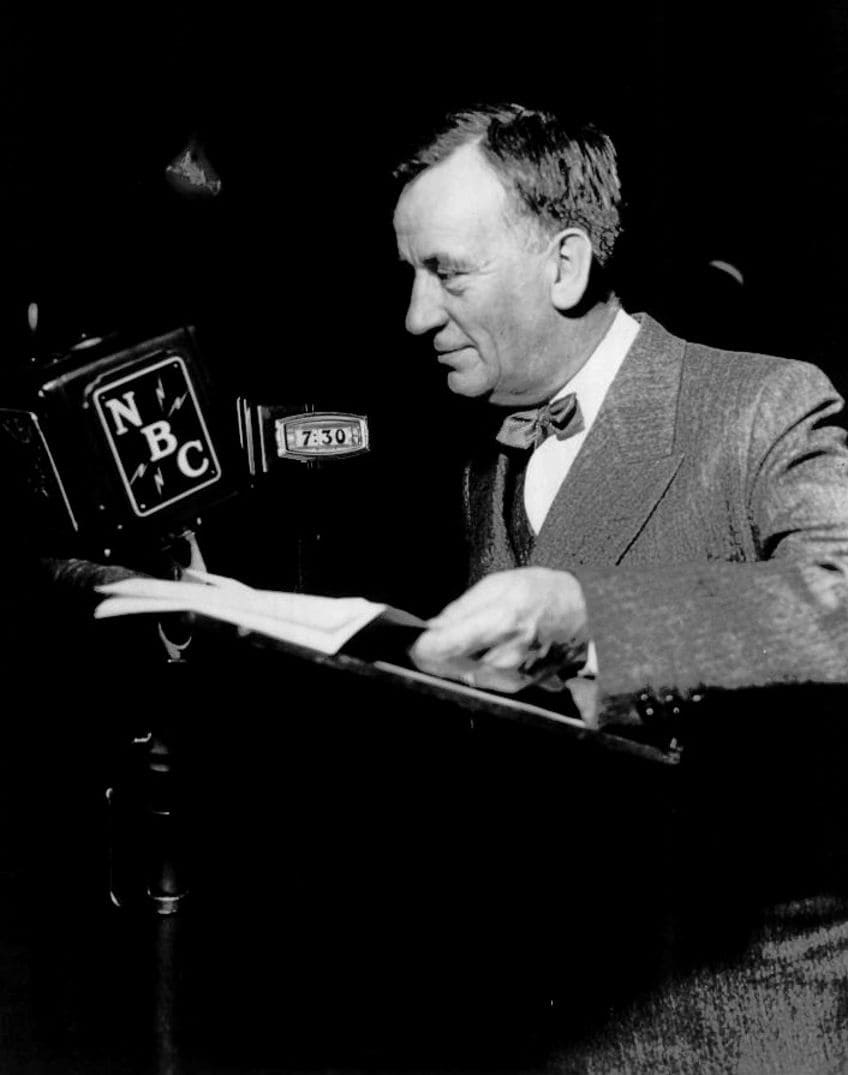
Plenty (2001) by Isobel Dixon
| Date Published | 2001 |
| Type of Poem | Narrative poem |
| Rhyme Scheme | None |
| Meter | None |
| Topic | Comparisons in childhood and adulthood |
Plenty is a poem by the South African poet, Isobel Dixon. This poem deals with the way in which childhood and adulthood can juxtapose each other. The poem examines the life that Dixon had when she was a child, and it was a thing of scarcity. Her mother did not have much money and their lives were in relative poverty.
When she was a child, she also had a difficult relationship with her mother because, as a child, she perceived her mother’s need to preserve money as a personal slight of sorts.
The poem points out the small things, such as not being allowed to have a bath filled to the brim, because of that poverty and the drought of the region. However, the poem eventually transitions to her adulthood, and she has managed to escape poverty. She is now able to have excessive amounts of water in her bath. She has no worries about money. However, she misses parts of it, and she feels very different about her mother now that she has aged.

Making a Man (2022) by Nixon Waterman
| Date Published | 2022 |
| Type of Poem | Narrative poem |
| Rhyme Scheme | AABB |
| Meter | Iambic pentameter |
| Topic | Pressures on children |
Making a Man is the newest poem on this list, and while it is not exactly a famous poem about growing up, it certainly is a good example of the kind of poetry that can come out of this theme. The poem is centered on the idea of someone growing up quickly and how we, as a society, want kids to grow up as quickly as possible. It also focuses on the negatives of what happens to children when they are pushed by society into certain ways of being.
The poem, for instance, discusses the way that we get babies to grow up as quickly as possible, send them off to school, then college, and we jam them full of certain expectations.
The most poignant part of the poem is near the end when it states that we must “make gold his god”, which means that money must be the one and the only thing that he is taught to desire in this world. The poem ultimately ends by off-handedly mentioning his quick death that will come as a result of all this. The poem is highly critical of how we treat childhood and growth, and for good reason.

Poems about growing up are all over the place! There’s a good reason for this. We all have to grow up. So, there are loads of poems about childhood, adolescence, and young adulthood that are out there for you to read. We have examined only ten such poems of this nature to show some of what is out there to peruse. However, an arrangement of only ten poems about growing up is a tiny array of such poems, and there are many others out there that you will likely enjoy if you decide to go looking.
Frequently Asked Questions
What Is a Poem About Growing Up?
A poem about growing up is, quite simply, exactly what it sounds like. This is a type of poem that focuses on the theme of growing up and of transitioning from childhood to later parts of life. There are many different ways that poems of this nature can explore the general concept of childhood, and many of them also show us the ways that our childhoods can contribute to who we become later in life. We all had childhoods, but they were all different childhoods, and so not every long or short poem about growing up will resonate with you personally, but some of them might.
Are All Poems About Growing Up Also About Childhood?
A poem about growing up is not necessarily synonymous with a poem about childhood. However, many poems about growing up are also poems about childhood. The reason this is not always the case is because there are various phases in your life that have led you to grow in some or another sense. For instance, adolescence is just as important as your childhood, and a lot of growth is needed to make it out of your teenage years. Early adulthood is similar. It is often very healthy to feel that who you were only a few years ago was weaker than who you are today. We are constantly growing and developing, and so we’re always, in a sense, growing up.
What Are Some of the Most Famous Poems About Growing Up?
There are a great many poems out there that are about growing up. Some of the most famous instances of poems about growing up include Mine Enemy is growing old (1880) by Emily Dickinson, Virgin Youth (1916) by D.H. Lawrence, and Plenty (2001) by Isobel Dixon. However, this is a tiny array of childhood poems about growing up, and there are many other instances of poems about growing up out there in the world. All you have to do is look for them and, perhaps, you’ll even find some that you absolutely adore.
What Are the Common Characteristics of Poems About Growing Up?
The general theme of a poem about growing up is that they focus on the act of growing up or phases of life, such as childhood. However, these kinds of themes can be explored in entirely different ways. This is why you will often find poems about growing up that focus on ideas like growth, maturation, nostalgia, potential, dreams, youthful traumas, and so on. These are entirely focused on the content of these kinds of poems because there is no such thing, from a formal perspective, as a poem about growing up. There is no special structure like a sonnet. So, a poem about growing up can be written in any number of ways.
Why Do Poets Write About Growing Up?
There are a number of truly universal concepts out there, such as things like love, death, trauma, and so on. These are things that happen to all of us over the course of our lives, and growing up is one of those things. We all experience the act of growing up. We all have our own personal experiences with childhood, we all have certain nostalgic elements we may wish to explore, and so on. Poets are the same. They also had childhoods, and they may wish to write a long or short poem about growing up to explore those very same concepts. A poem about growing up is also often relatable. We’ve all had to do it, after all.
Justin van Huyssteen is a freelance writer, novelist, and academic originally from Cape Town, South Africa. At present, he has a bachelor’s degree in English and literary theory and an honor’s degree in literary theory. He is currently working towards his master’s degree in literary theory with a focus on animal studies, critical theory, and semiotics within literature. As a novelist and freelancer, he often writes under the pen name L.C. Lupus.
Justin’s preferred literary movements include modern and postmodern literature with literary fiction and genre fiction like sci-fi, post-apocalyptic, and horror being of particular interest. His academia extends to his interest in prose and narratology. He enjoys analyzing a variety of mediums through a literary lens, such as graphic novels, film, and video games.
Justin is working for artincontext.org as an author and content writer since 2022. He is responsible for all blog posts about architecture, literature and poetry.
Learn more about Justin van Huyssteen and the Art in Context Team.
Cite this Article
Justin, van Huyssteen, “Poems About Growing Up – Navigating Life Through Poetry.” Art in Context. November 15, 2023. URL: https://artincontext.org/poems-about-growing-up/
van Huyssteen, J. (2023, 15 November). Poems About Growing Up – Navigating Life Through Poetry. Art in Context. https://artincontext.org/poems-about-growing-up/
van Huyssteen, Justin. “Poems About Growing Up – Navigating Life Through Poetry.” Art in Context, November 15, 2023. https://artincontext.org/poems-about-growing-up/.


